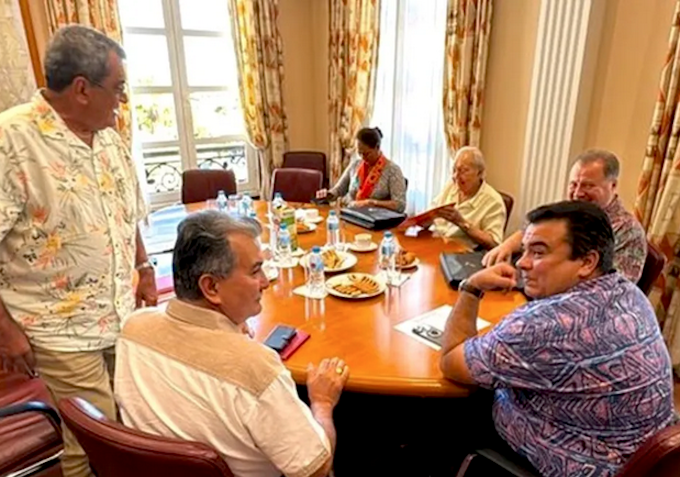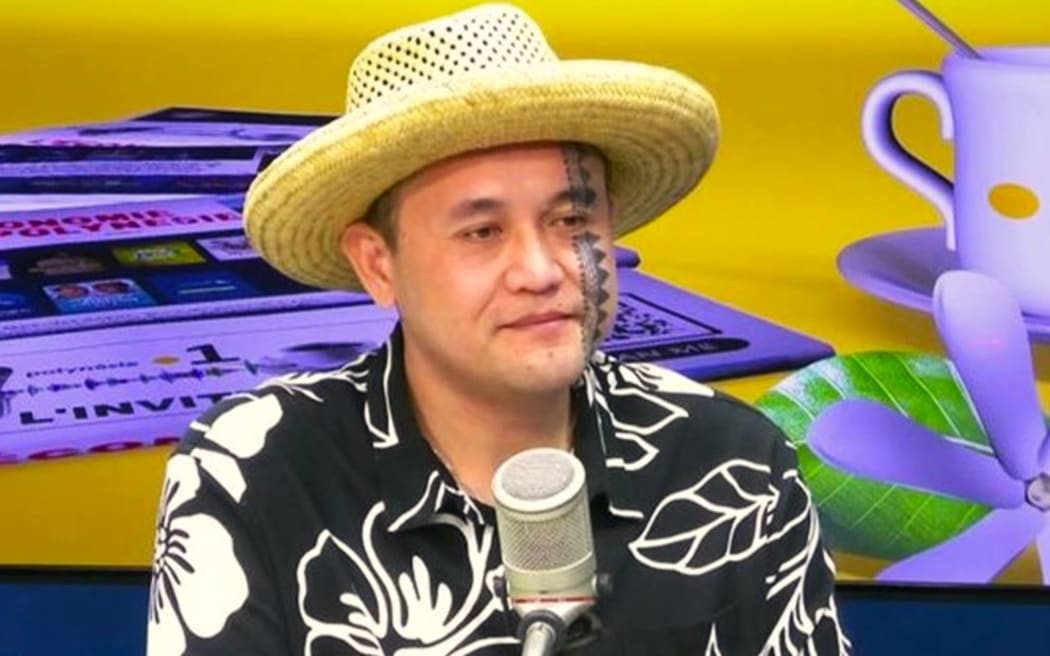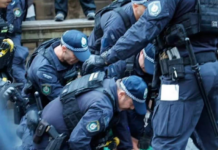
By Patrick Decloitre, RNZ Pacific correspondent French Pacific desk
After the surprise announcement of the French National Assembly’s dissolution last Sunday, French Pacific territories are already busy preparing for the forthcoming snap election with varying expectations.
Following the decision by President Emmanuel Macron, the snap general election will be held on June 30 (first round) and July 7 (second round).
- READ MORE: Kanaky New Caledonia unrest: Fiji, PNG call for UN decolonisation mission
- Pacific churches call at UN for France to drop ‘limbo law’ to restore peace in Kanaky
- Kanaky New Caledonia unrest: What happens to limbo law change with French snap election?
- History ‘replaying itself’ in Kanaky but Pacific solidarity growing, says Tau
- Other Kanaky New Caledonia reports
Unsurprisingly, most of the incumbent MPs for the French Pacific have announced they will run again. Here is a summary of prospects:
New Caledonia
In New Caledonia, which has been gripped by ongoing civil unrest since violence broke out on May 13, the incumbents are pro-France Philippe Dunoyer and Nicolas Metzdorf, both affiliated to Macron’s Renaissance party, but also opponents on the local scene, marked by strong divisions within the pro-France camp.
Hours after the surprise dissolution, they both announced they would run, even though the campaign, locally, was going to be “complicated” with a backdrop of insurrectional roadblocks from the pro-independence movement.
Dunoyer said it was the “worst time for an election campaign”.
“It’s almost indecent to call [New] Caledonians to the polls at this time, because this campaign is not the priority at all,” he said.
“Not to mention the curfew still in place which will make political rallies very complicated.
“Political campaigns are always contributing to exacerbating tensions. [President Macron’s call for snap elections] just shows he did not care about New Caledonia when he decided this,” he said.
Dunoyer told NC la 1ère television on Monday he was running again “because for a very long time, I have been advocating for the need of a consensus between pro-independence and anti-independence parties so that we can exit the Nouméa Accord in a climate of peace, respect of each other’s beliefs”.
On the local scene, Dunoyer belongs to the moderate pro-French Calédonie Ensemble, whereas Metzdorf’s political camp (Les Loyalistes) is perceived as more radical.
“The radicalism on both parts has led us to a situation of civil war and it is now urgent to put an end to this . . . by restoring dialogue to reach a consensus and a global agreement,” he said.
Dunoyer believes “a peaceful way is still possible because many [New] Caledonians aspire to living together”.
On the pro-independence side, leaders of the FLNKS (Kanak and Socialist National Liberation Front) platform have also been swift to indicate they intend to field pro-independence candidates so that “we can increase our political representation” at the [French] national level.
The FLNKS is holding its convention this Saturday, when the umbrella group is expected to make further announcements regarding its campaign strategy and its nominees.
French Polynesia
In French Polynesia, since the previous general elections in 2022, the three seats at the National Assembly were taken — for the first time ever — by members of the pro-independence Tavini Huiraatira, which is also running the local government since the Tahitian general election of May 2023.

The incumbents are Steve Chailloux, Tematai Legayic and Mereana Reid-Arbelot.
The Tavini has held several meetings behind closed doors to fine-tune its strategy and designate its three fielded candidates.
But the snap election is also perceived as an opportunity for the local, pro-France (locally known as “autonomists”) opposition, to return and overcome its current divisions.
Since Sunday, several meetings have been held at party levels between the components of the pro-France side.
Former President and Tapura party leader Edouard Fritch told local media that at this stage all parties at least recognised the need to unite, but no agreement had emerged as yet.
He said his party was intending to field “young” candidates and that the most effective line-up would be that all four pro-French parties unite and win all three constituencies seats for French Polynesia.
“A search for unity requires a lot of effort and compromises . . . But a three-party, a two-party platform is no longer a platform; we need all four parties to get together,” Fritch said, adding that his party was ready to “share” and only field its candidate in only one of the three constituencies.
Pro-France A Here ia Porinetia President Nicole Sanquer told local media “we must find a way of preserving each party’s values”, saying she was not sure the desired “autonomist” platform could emerge.
Wallis and Futuna
In Wallis and Futuna, there is only one seat, which was held by Mikaele Seo, affiliated to French President Macron’s Renaissance party.
He has not indicated as yet whether he intends to run again at the forthcoming French snap general election, although there is a strong likelihood he will.
This article is republished under a community partnership agreement with RNZ.








































